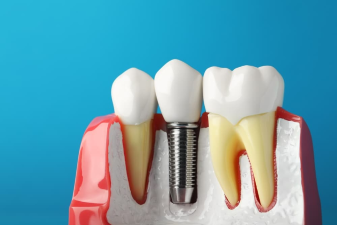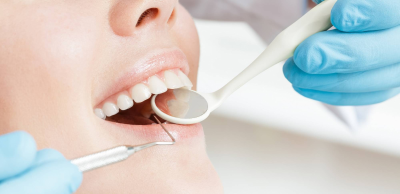Oral health is often seen as separate from overall health, but emerging research has shown a vital connection between the two. Specifically, studies have linked poor oral health, particularly periodontal disease, to an increased risk of heart disease. Understanding this relationship is essential for maintaining both a healthy mouth and a healthy heart.

Understanding Oral Health and Its Importance
What Is Oral Health?
Oral health encompasses the health of the mouth, teeth, gums, and surrounding tissues. It includes everything from the absence of dental disease to proper functioning in eating and speaking. Maintaining good oral health is crucial not only for a beautiful smile but also for overall health and well-being.
Common Oral Health Issues
Some common oral health issues include:
- Cavities: Decay of the tooth structure caused by bacteria producing acids that erode enamel.
- Gum Disease: Inflammation of the gums ranging from gingivitis (mild) to periodontal disease (severe).
- Tooth Sensitivity: Discomfort or pain in response to certain stimuli such as hot or cold temperatures.
- Bad Breath: Often associated with poor oral hygiene, it can indicate underlying health issues.
The Connection Between Oral Health and Heart Disease
What Is Heart Disease?
Heart disease refers to various conditions that affect the heart's structure and function. This umbrella term includes coronary artery disease, heart failure, arrhythmias, and valvular heart diseases. Many forms of heart disease are associated with risk factors such as high blood pressure, high cholesterol, smoking, obesity, and a sedentary lifestyle.
How Oral Health Affects Heart Health
Research has established several pathways through which oral health influences heart disease risk:
1. Inflammation
Periodontal disease is characterized by chronic inflammation of the gums and surrounding tissues. This inflammation can spill over into the bloodstream, causing systemic inflammation that affects other parts of the body, including the heart. When the inflammatory response is heightened, it can damage blood vessels and contribute to the development of atherosclerosis, a condition that narrows the arteries.
2. Bacterial Transmission
The mouth is a breeding ground for bacteria, some of which can enter the bloodstream through gum tissue that has been compromised by dental disease. Studies have shown that bacteria associated with periodontal disease can be found in atherosclerotic plaques in the arteries. The presence of these bacteria may trigger an inflammatory response, further contributing to heart disease.
3. Shared Risk Factors
Several risk factors are common to both poor oral health and heart disease. These include:
- Smoking: A significant risk factor for both gum disease and heart issues.
- Diabetes: A condition that can exacerbate gum disease and increase heart disease risk.
- Obesity: Excess weight can contribute to inflammation and, in turn, both oral and cardiovascular health problems.
The Evidence Connecting Oral Health and Heart Disease
Numerous studies highlight the association between periodontal disease and heart disease:
- Increased Heart Attack Risk: People with periodontal disease may have a significantly higher risk of heart attacks compared to those with healthy gums.
- Stroke Association: Research has found that gum disease may increase the risk of stroke due to its effects on the cardiovascular system.
- Diabetes Link: The reciprocal relationship between diabetes and periodontal disease indicates that individuals with diabetes are at an increased risk of developing gum disease, which can complicate heart conditions.
Periodontal Disease: A Closer Look
What Is Periodontal Disease?
Periodontal disease encompasses a range of conditions affecting the supporting structures of the teeth, including gums, bone, and connective tissues. It typically begins with gingivitis, which is inflammation of the gums. When left untreated, it can progress to periodontal disease, leading to tooth loss and significant damage to the surrounding bone.
Causes of Periodontal Disease
Several factors contribute to the development of periodontal disease:
- Poor Oral Hygiene: Inadequate brushing and flossing lead to the buildup of plaque, which can harden into tartar if not removed.
- Smoking and Tobacco Use: Tobacco products negatively impact gum health and contribute to the progression of gum disease.
- Certain Medical Conditions: Conditions like diabetes, hormonal changes, and autoimmune diseases can increase susceptibility to gum disease.
Symptoms of Periodontal Disease
Be aware of the following symptoms associated with periodontal disease:
- Red, swollen, or bleeding gums
- Persistent bad breath
- Painful chewing or biting
- Loose teeth or changes in bite
Diagnosis and Treatment of Periodontal Disease
To diagnose periodontal disease, dental professionals perform clinical examinations and may utilize periodontal probing for assessing gum health. X-rays may also be taken to evaluate bone loss.
Treatment Options Include:
- Professional Cleaning: Dentists can perform scaling and root planing to remove plaque and tartar buildup.
- Medications: Antimicrobial rinses or topical treatments may be prescribed to control bacteria.
- Surgery: In advanced cases, surgical intervention may be necessary to restore gum health.

Steps to Improve Oral Health and Reduce Heart Disease Risk
1. Maintain Good Oral Hygiene
Establishing and maintaining a consistent oral care routine is essential for oral health:
- Brushing: Brush your teeth at least twice daily with fluoride toothpaste. Ensure to use proper technique to clean all tooth surfaces.
- Flossing: Floss daily to remove plaque and food particles between teeth.
- Mouthwash: Consider using an antimicrobial mouthwash to help control bacteria and reduce plaque buildup.
2. Get Regular Dental Check-ups
Regular dental visits are vital for monitoring oral health and detecting issues early. Dentists can perform professional cleanings, assessments for gum disease, and necessary interventions.
3. Adopt a Heart-Healthy Diet
A balanced diet rich in fruits, vegetables, whole grains, and lean proteins benefits both oral and heart health. Specific recommendations include:
- Limit Sugars: Reduce the intake of sugary foods and beverages to lower the risk of cavities and gum disease.
- Omega-3 Fatty Acids: Include sources of omega-3 fatty acids, such as fatty fish, nuts, and seeds, known for their anti-inflammatory properties.
- Antioxidant-Rich Foods: Foods high in antioxidants, like berries and leafy greens, promote overall health and help combat inflammation.
4. Quit Smoking
Quitting tobacco has significant health benefits, including improved oral health and a reduced risk of heart disease. Seek support through quit smoking programs or consult a healthcare provider for assistance.
5. Manage Chronic Conditions
If you have diabetes or other chronic conditions, work to manage them effectively under the guidance of healthcare providers. Proper management can help reduce the risk of complications affecting both oral and heart health.
6. Stay Active
Regular physical activity contributes to overall cardiovascular health and may help improve blood circulation, which is beneficial for both heart function and oral health. Aim for at least thirty minutes of moderate exercise most days of the week.
7. Manage Stress
Chronic stress is linked to various health issues, including poor oral hygiene habits. Implement stress management techniques such as mindfulness, meditation, or exercise to help maintain both oral and overall health.
Understanding the Role of Healthcare Providers
The Role of Dentists
Dentists play a crucial role in assessing and improving oral health as it pertains to heart disease. Routine check-ups, professional cleanings, and patient education are essential components of preventive care. Dentists may also collaborate with medical professionals to co-manage patients with chronic health conditions affecting both oral and heart health.
The Role of Medical Professionals
Healthcare providers should consider the link between oral health and overall health when diagnosing and treating patients. Educating patients about the importance of maintaining good oral hygiene alongside chronic disease management is vital for promoting comprehensive health.
Conclusion
The connection between oral health and heart disease highlights the importance of maintaining good oral hygiene and seeking regular dental care. Periodontal disease, in particular, has been linked to an increased risk of heart disease, making it essential to prioritize oral health to protect overall wellbeing.
By adopting effective oral hygiene practices, maintaining a healthy lifestyle, and managing chronic health conditions, individuals can reduce their risk of both periodontal disease and cardiovascular issues. Being proactive about oral health not only benefits your smile but also contributes to a healthy heart, ultimately leading to a better quality of life.



